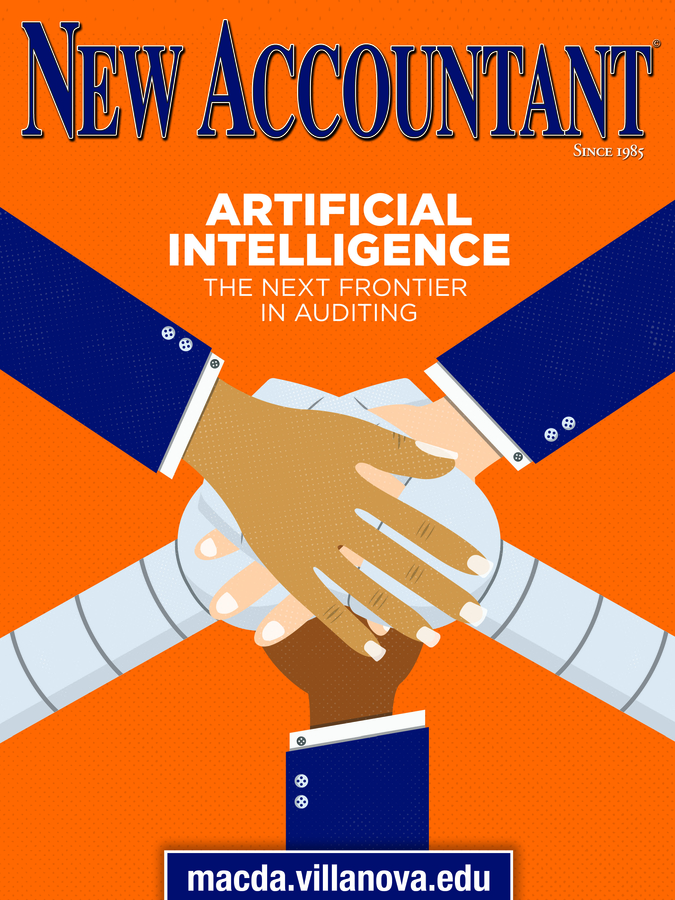Technology is transforming accounting. Are you ready?
CHICAGO, IL, October 03, 2019 /Neptune100/ — New Accountant Magazine, a trusted professional Peer-Reviewed journal for college accounting students since 1985, published its latest issue, available in print and digital.
The featured cover story, “Artificial Intelligence: The Next Frontier in Auditing” by Michael F. Peters, PhD, Villanova School of Business brings to light the explosion of technology that’s changing lives and careers – some are calling this explosion the “Fourth Industrial Revolution”. He goes on to explain how technology has been making its way into accounting for some time now and discusses why leading firms need accountants with not only a CPA but ones that understand data, technology and a broader business sense.
As the author indicates in the article “Gone are the days of examining only a sample of ledger data; today, accountants use analytics to examine the entire ledger of structured data more quickly and with greater insight into the organization.”
In this issue, Peer-Reviewed article “The Path to the Office of the Chief Financial Officer: Degrees and Credentials” by Kay Zekany and Jeffrey Stevens, McNeese State University; studied published biographies of CFOs from the 500 largest corporations in America and looked at their degree data showing multiple paths they took on their way to becoming a CFO.
Another Peer-Reviewed article, “Audit Standards Deficiencies Identified in PCAOB Inspection Reports” by Magdy Farag and Fei Kang , California State Polytechnic University, Pomona , indentify specific auditing standards implicated by the deficiencies identified in its inspections. The frequently cited audit deficiencies were those related to the standards field of work. The article discusses how all auditors and accounting firms should pay special attention to high risk areas.
A third Peer-Reviewed article “How Do Recent Tax Law Changes Affect Nonprofits?” by Mary Ann Hofmann, Appalachian State University, summarizes the primary impacts on tax-exempt nonprofits. Changes in the tax rate levied on Unrelated Business Income and other direct effects of the Tax Cuts and Job Act, as well as increases in the standard deductions for income tax, and exclusions in exemption amounts for gift and state tax mean there are less tax incentives for charitable giving, which may impact nonprofit revenues from contributions.
Published since 1985, New Accountant is a Peer-Reviewed professional print and digital publication for college accounting students and accounting professionals to prepare for a career in accounting, auditing and the industry. For more information, please visit www.NewAccountantUSA.com.



